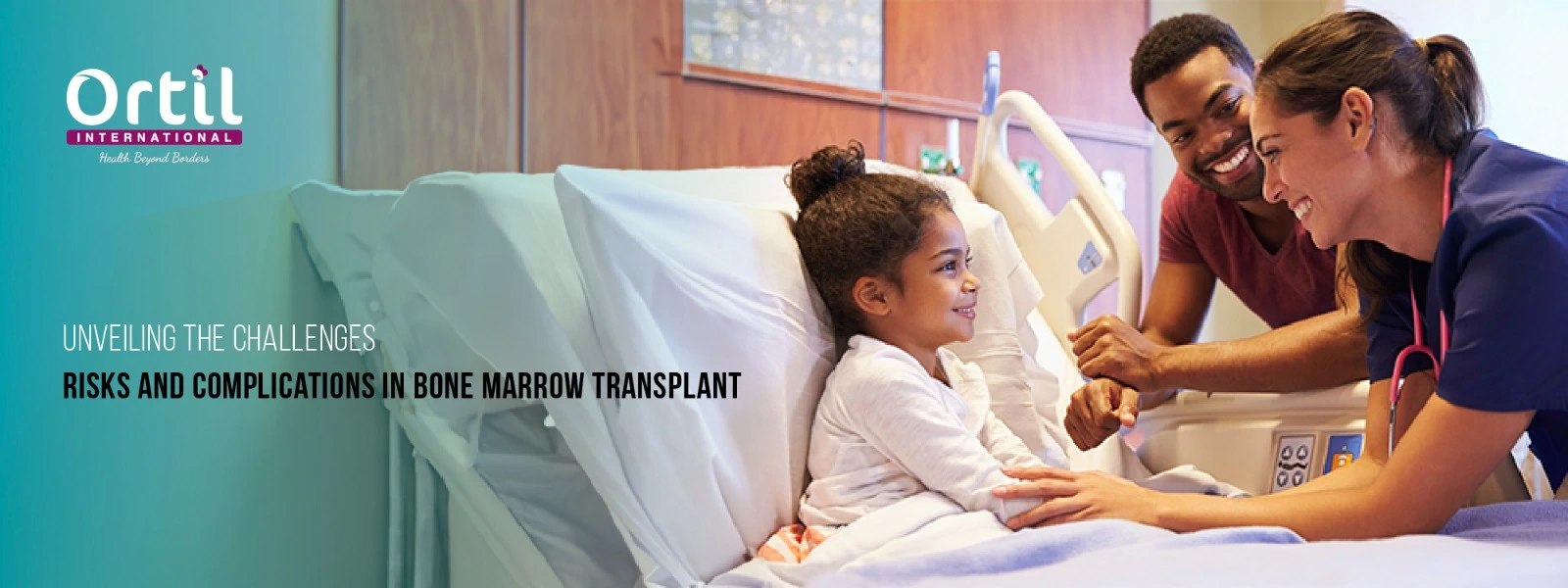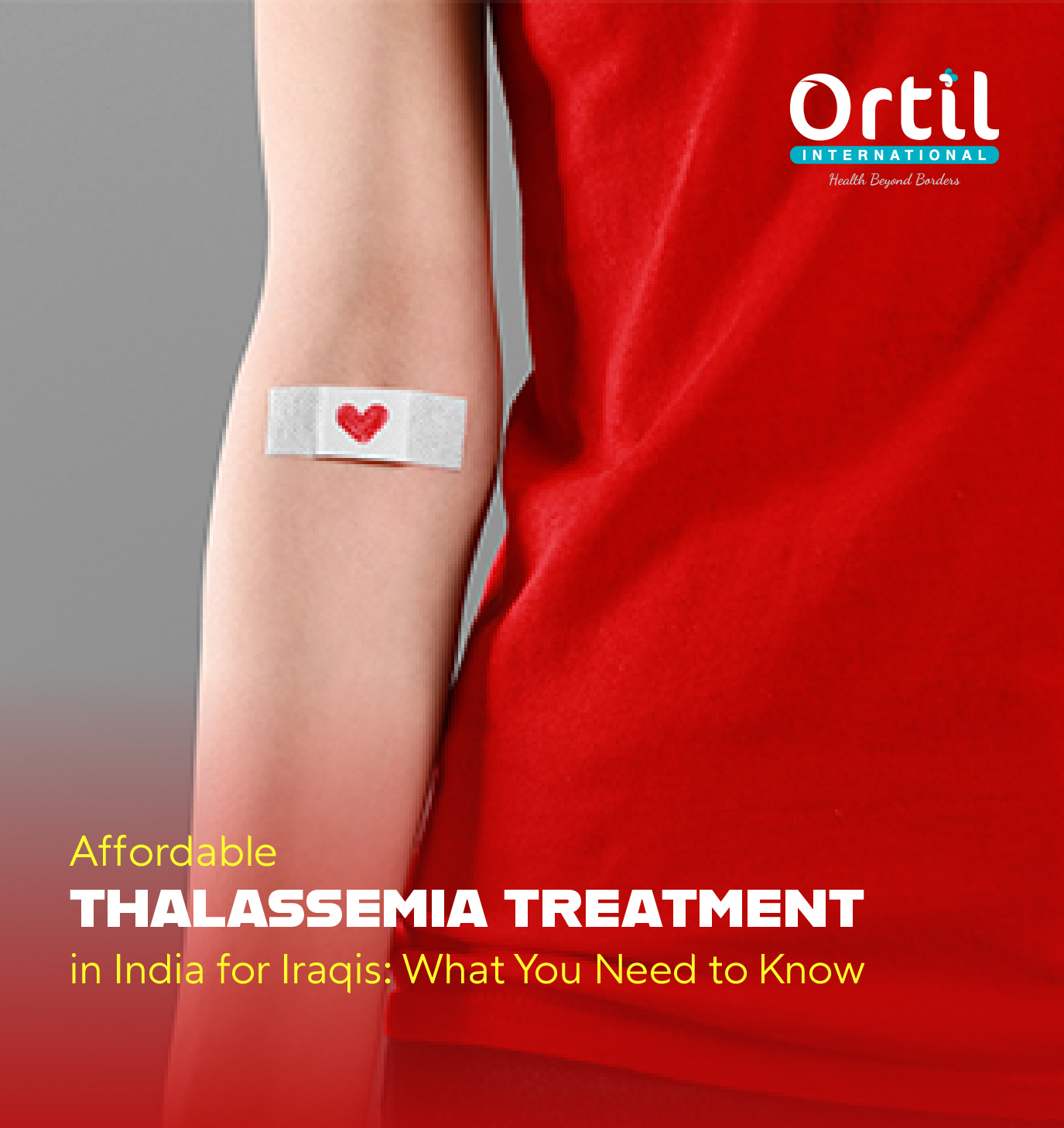Risk and Complications of Bone Marrow Transplant
Bone marrow transplant is a treatment in which stem cells are transplanted in the place of damaged bone marrow. This treatment is used to treat many types of cancer. Like many other treatment procedures, bone marrow transplants are associated with many risks and complications.

Before the bone marrow transplant treatment, your doctor informs you about the possible complications, risks, and benefits. When the benefits are more than the risks, only then can doctors perform the procedure of bone marrow transplant.
Understanding Bone Marrow Transplantation
A bone marrow transplant is a procedure where damaged or unhealthy bone marrow is replaced with healthy stem cells from the donor bone marrow. Bone marrow is the center portion of the bones and it has the function of making different types of blood cells.
Stem cells in the bone marrow can convert into any type of blood cell, which is why these stem cells are used when the blood cells become abnormal due to some disease or other condition.
Before the transplant, patients may receive intense chemotherapy or radiation therapy. High doses of chemotherapy, radiation, or both are usually given to kill cancer cells and also destroy any remaining healthy bone marrow. It is necessary to allow new stems to engraft and grow.
Bone marrow transplant has many types, and each type of procedure is performed according to the suitability of the patient. Some types of bone marrow transplants are as follows:
Autologous Bone Marrow Transplant : In this type of bone marrow transplant, stem cells are taken from the patient’s own body from different parts of the body. These cells are stored for future use and are transplanted after radiation therapy or chemotherapy.
Allogeneic Bone Marrow Transplant : In this procedure, stem cells are taken from a donor who is a close family member and has matching genetics.
A bone marrow transplant is done to replace bone marrow that is not working properly or has been damaged by chemotherapy or radiation. This procedure may be recommended if you have:
- Cancer : Leukemia, lymphoma, myelodysplasia, or multiple myeloma.
- Other diseases include severe immune system disorders, aplastic anemia, thalassemia, and sickle cell anemia.
Why Side Effects Occur After Bone Marrow Transplantation?
After the procedure of bone marrow transplant, many bone marrow transplant risks are present due to the damage of bone marrow by chemotherapy or radiation therapy just before the transplant. Some complications can occur due to the conditioning therapy.
Fortunately, it is possible to manage or minimize the complications that can occur after a bone marrow transplant. Some complications can be prevented, and most can be treated to improve the symptoms of patient.
Some of these complications can be severe, and it is very important to manage them on time, so it is essential to contact your doctor or transplant team.
Common Complications and Side Effects after Bone Marrow Transplantation
There are many chances of bone marrow transplant complications, and each patient can experience different types of complications according to the type of bone marrow transplant. There are some unique complications after a bone marrow transplant, which are listed below:
Complications after Autologous bone marrow transplant
- Infection
- Bleeding
- Nausea and vomiting
- Fatigue
- Low blood cell counts (anemia, leukopenia, thrombocytopenia)
- Mucositis (inflammation and ulceration of the mucous membranes)
- Diarrhea
- Hair loss (alopecia)
- Skin rash or irritation
- Peripheral neuropathy (numbness, tingling, or weakness in the hands and feet)
Complications after Allogeneic bone marrow transplant
- Graft-versus-host disease (GVHD)
- Immunosuppression
- Infection
- Organ damage (liver, lungs, kidneys)
- Graft failure
- Mucositis
- Venous occlusive disease (blockage of veins in the liver)
- Cytokine release syndrome (CRS)
- Pulmonary complications (pneumonia, acute respiratory distress syndrome)
- Hemorrhagic cystitis (inflammation of the bladder leading to bleeding)
Some side effects occur right after the treatment, but some may appear late. For this, side effects are also described as long-term and short-term.
Short-time side effects of bone marrow transplant
- Nausea and vomiting
- Mouth sores, loss of appetite, and changes in taste
- Fatigue
- Hair loss
- Reduced platelet levels, leading to difficulty clotting blood
- Decreased red blood cell levels, resulting in anemia
- Diarrhea
- Weight loss
Long-term side effects of bone marrow transplant
- Infertility makes it difficult to conceive or impregnate
- Cataracts causing cloudy vision
- Sexual health issues
- Premature menopause
- Thyroid disorders
- Lung and bone damage
- Increased risk of developing another type of cancer.
Managing Complications and Side Effects After Bone Marrow Transplantation
After a bone marrow transplant, you will receive a set of instructions and guidelines that you should follow to manage or prevent the complications and side effects of a bone marrow transplant. Here are some of the important points you should consider:
- After your bone marrow transplant, you have to undergo regular blood tests and other assessments to keep your general health in good status.
- Medication is given to manage the complications like nausea and diarrhea.
- If infections or other complications occur, you may have to go under hospitalization for some days and you will be under observation.
- According to the type of transplant and complications that may occur, you may need to stay near the hospital for proper monitoring.
- Transfusions of red blood cells and platelets might be required until the new bone marrow starts producing healthy blood cells.
- Close medical supervision continues after your bone marrow transplant for years.
Medications to Manage Complications
Medications are given to the patients that suppress the response of the immune system to prevent graft-versus-host disease (GVHD). These are known as immunosuppressive drugs. Additionally, during immune system recovery, medications are given that prevent infections.
Diet and Lifestyle Adjustments
After the transplant, dietary changes may be necessary to maintain health and prevent excessive weight gain. Some dietary recommendations may include:
- Healthy foods, including vegetables, fruits, whole grains, lean proteins, legumes, and healthy fats like olive oil, are good in the recovery phase.
- You should limit salt and alcohol intake.
- Avoid certain fruits like grapefruit that can interact with medications.
Physical Activity
Regular physical activity after a bone marrow transplant helps to manage weight for bone strength, endurance, muscle tone, and heart health. You may be advised to increase the level of activity gradually.
Cancer Prevention
After the transplant, it is very important to prioritize cancer prevention measures. This includes avoiding smoking, using sunscreen outdoors, and going for cancer screenings regularly.
Conclusion
Bone marrow transplant is a complex procedure, and many risks are associated with it. But luckily, post-BMT complications can be managed or prevented with the help of medications and lifestyle modifications. This preventive measure helps in the recovery phase after a bone marrow transplant.
FAQ's
What is the Survival Rate of a Bone Marrow Transplant?
The survival rates of a bone marrow transplant are very high and have the percentage of 70% to 90%.
Can you Have an Everyday Life after a Bone Marrow Transplant?
Yes, with proper medications, follow-up, and management of complications, one can have an everyday life after BMT.
Who is the Best Bone Marrow Donor?
Patients’ stem cells or those of close relatives are the best bone marrow donors.
Is a Bone Marrow Transplant a big Operation?
A bone marrow transplant is not a major surgery, and it is similar to the procedure of transfusion of blood.
What Not to do after a Bone Marrow Transplant?
Avoid unhealthy lifestyle habits like smoking and drinking alcohol after BMT.


















